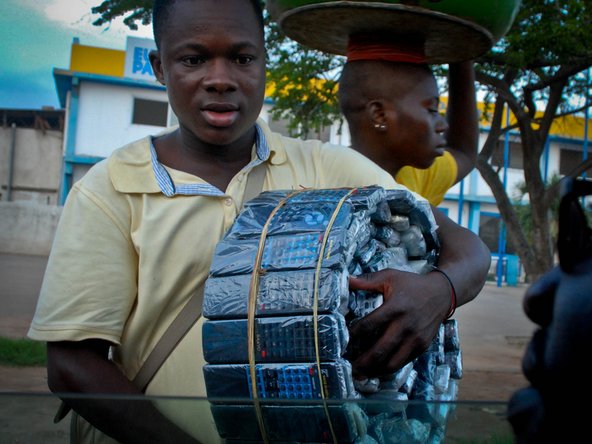Right outside the Ghana electronics scrapyard Agbogbloshie, our car was approached by a young man selling refurbished TV remotes. In the developing world, entrepreneurs often start small one-person businesses, hawking available goods to passersby. Near Agbogbloshie, “available goods” means electronics and accessories for those electronics. What good is a TV without a remote? What good is a printer without a power adapter?
This is a side of Agbogbloshie you don’t see as often as pictures of young boys burning electronics. Many jobs are born out of those piles of discarded electronics—this man had to collect these remotes, repair and clean them, and now he can put food on the table by selling them. Is Agbogbloshie just a dump? Clearly some of the electronics that end up there are functional, or at least repairable. Stopping all exports of used electronic equipment would mean this man would lose his job. And at one level, it’s pretty good job: it requires electronics repair skill and business sense. Isn’t it better that these remotes be reused than shredded?
However, he’s also likely exposed to all kinds of toxic fumes from the fires in the scrapyard. If the arsenic he’s breathing gives him lung cancer, or the lead causes nerve damage, was it worth it? One thing is clear—Africa desperately needs better modern e-waste recycling infrastructure. Until then, a vast repair- and tech-savvy workforce will continue to sicken itself with toxins.





0 Комментариев